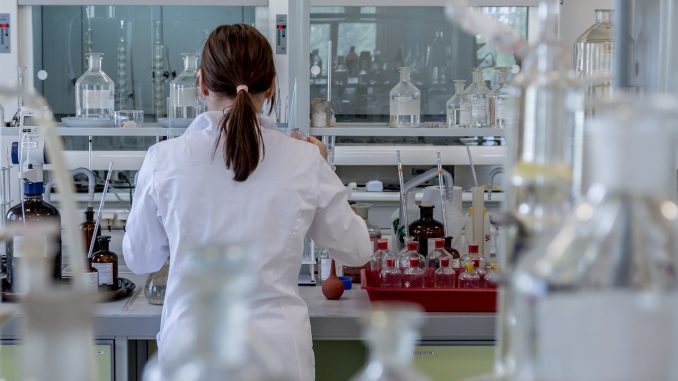
With the International Agency for Research on Cancer (IARC) scheduled to announce its new director this month, the body is at something of a crossroads. Under the guardianship of outgoing incumbent Christopher Wild, IARC has been criticized over its methodologies, become embroiled in petty feuds with other research boards, and lost a considerable amount of credibility over its flagship monographs on the evaluation of carcinogenic hazards.
Now, however, Wild is on his way out of the door and the agency has a tangible chance to re-evaluate its working methods, mend bridges with its counterparts, and get back to its original mission – which is to conduct thorough, scientific analyses of substances using all available data to provide useful information, and to highlight potential areas of concern where necessary, without overstepping the mark into scaremongering and sensationalism. If a successful appointment is made, IARC can return to its lofty position of respect in the cancer research community, potentially facilitating the machinations of EU policymaking at the same time.
Much ado about monographs
One of the principal criticisms levelled at IARC is its monograph-based approach to cancer research. Rather than quantifying the level of risk that a certain substance, product or activity carries in causing cancer, IARC concerns itself entirely with the possibility of it posing a hazard at all, regardless of concentration levels – and, at times, has incorrectly classified such hazards as “risk.” Because of this approach, of the almost 1,000 substances IARC has researched over half a century, the body to date has only found one of them to be “probably not carcinogenic,” the lowest classification of toxicity it can give.
So, while IARC has concluded that the nylon ingredient found in toothbrushes and yoga pants are not carcinogenic, it has surmised that items as ostensibly harmless as processed meats and coffee could potentially be. This, despite the fact there is actually evidence that not only is coffee safe; it could reduce the chance of contracting liver cancer and several other diseases.
IARC has defended its position by claiming that it is only responsible for determining potential hazard, not risk, and that it is up to other scientific bodies to carry out further research prior to introducing any legislation based upon its findings. Of course, the monograph program predates Christopher Wild by more than three decades and as such should not be conflated with his own roll call of complaints and concerns, raised not only by the industries who have been so affected by IARC’s findings but by the very contemporaries and counterparts IARC is meant to support.
A walk on the Wild side
Although the monograph program has created confusion over the cancer-causing potential of a variety of substances, it’s not this approach alone that has dragged IARC through the mud over recent years. That ignominy has been compounded by its outgoing director, under whose authority the agency has engaged in various forms of public mud-slinging. This includes threatening litigation against pro-science advocacy organizations, accusing media outlets of “severe distortion” and attempting to discredit other research boards, in an apparent effort to score political points.
The most prominent case of this behaviour arose in the wake of glyphosate scandal, when IARC concluded that the ubiquitous herbicide was “probably carcinogenic” in 2015. It was the first and only major investigation to reach such a conclusion, and with an impending vote on whether to sanction the use of glyphosate for a further decade in EU member states on the horizon, the European Food Safety Authority (EFSA) undertook its own review, in keeping with the IARC’s own modus operandi. The EFSA report concluded the substance was largely safe.
Rather than accepting these results, a coalition of 96 scientists headed up by Dr. Chris Portier – the man who served as an invited specialist on the IARC monograph on glyphosate and who has ties to the Environmental Defense Fund (EDF) in the USA – wrote to the EU asking them to disavow the ESFA report and prioritize the IARC one. Such meddling in international affairs and muddying of political waters from an advisory body is unheard of and caused no small amount of political strife within the EU itself.
EU’s own ship in need of steadying
The confusion over whether glyphosate is carcinogenic or not – an idea that has no scientific basis beyond IARC’s flawed hazard-based approach – led to several EU member states abstaining from a vote on the subject, keen to avoid any blame levelled at them from protest groups. As a result, the extension of glyphosate’s permit in the bloc was only achieved after an unforeseen U-turn from the German candidate. While the passing of the buck to Brussels was narrowly avoided this time, the episode did highlight the lack of trust which EU member states apparently have in their own scientific bodies and the fundamental problems of the current policymaking setup.
Perhaps, then, the changing of the guard at IARC could be accompanied by a similar shift in policy at the EU. Whoever takes the reins at IARC, the EU should snatch this opportunity to safeguard itself from being railroaded by a questionable advisory body – and to avoid being held captive by member states reluctant to stick their heads above the political parapet. If greater trust is to be instilled back in both IARC and the EU, the respective bodies need to reassess how they conduct themselves – both internally and externally – or else find themselves deep in the weeds for the foreseeable future.


Leave a Reply